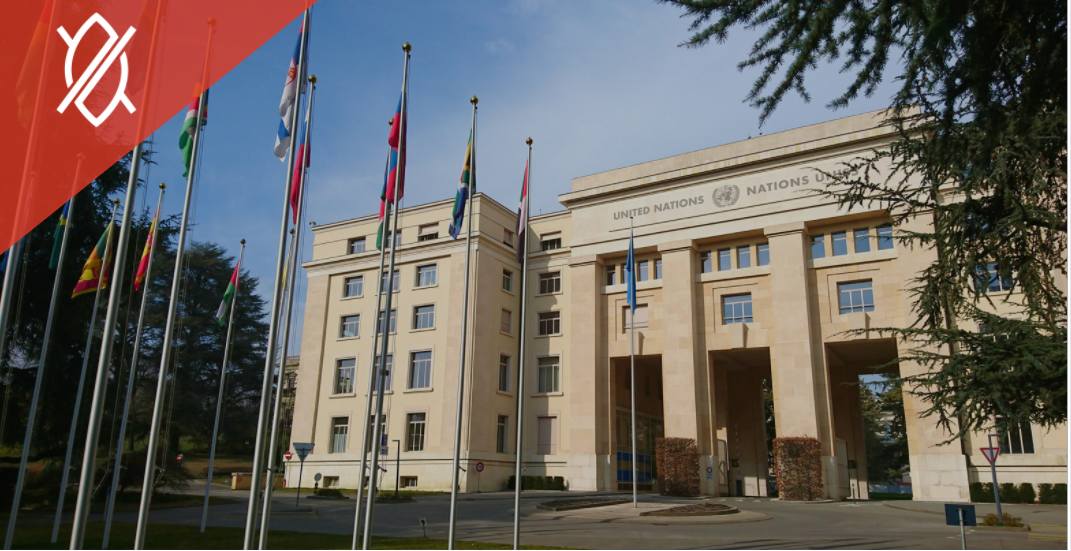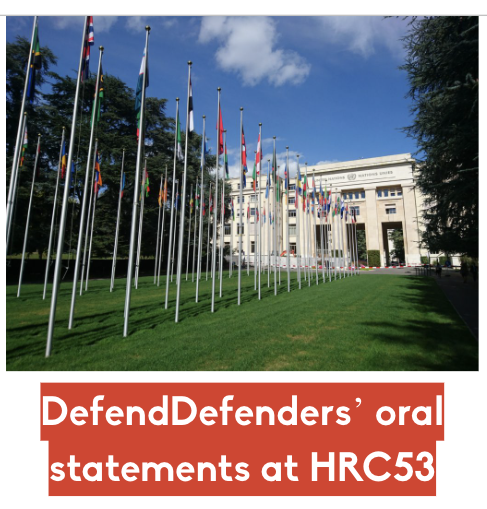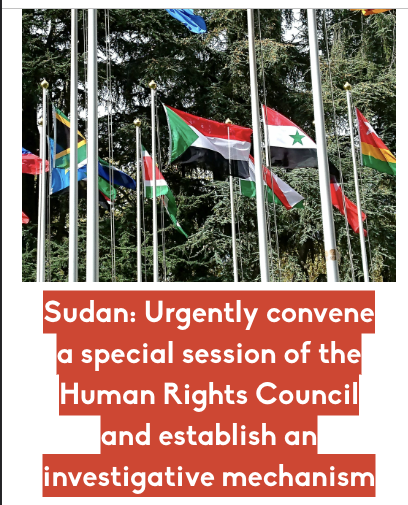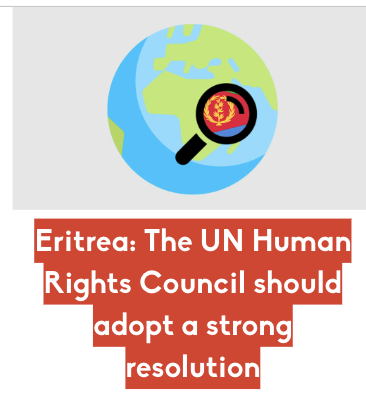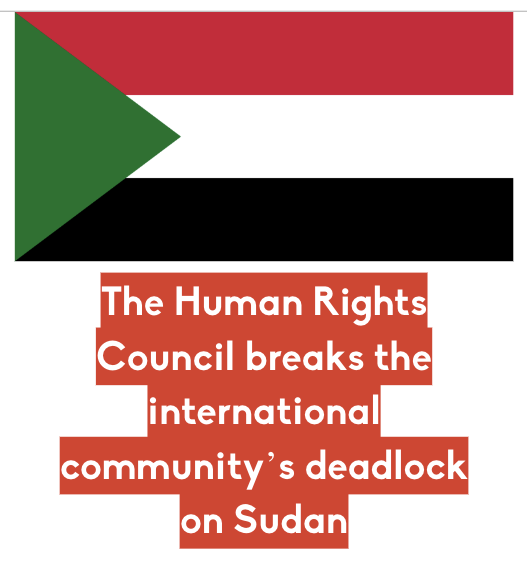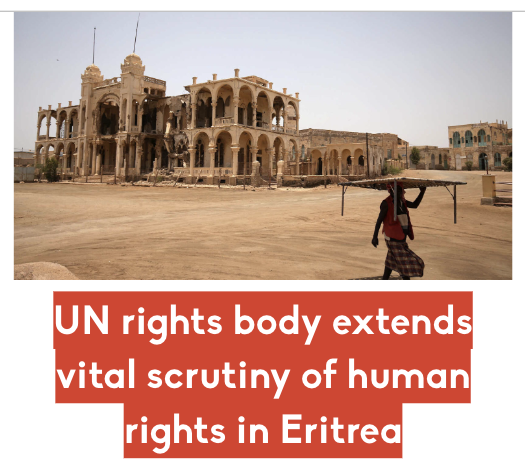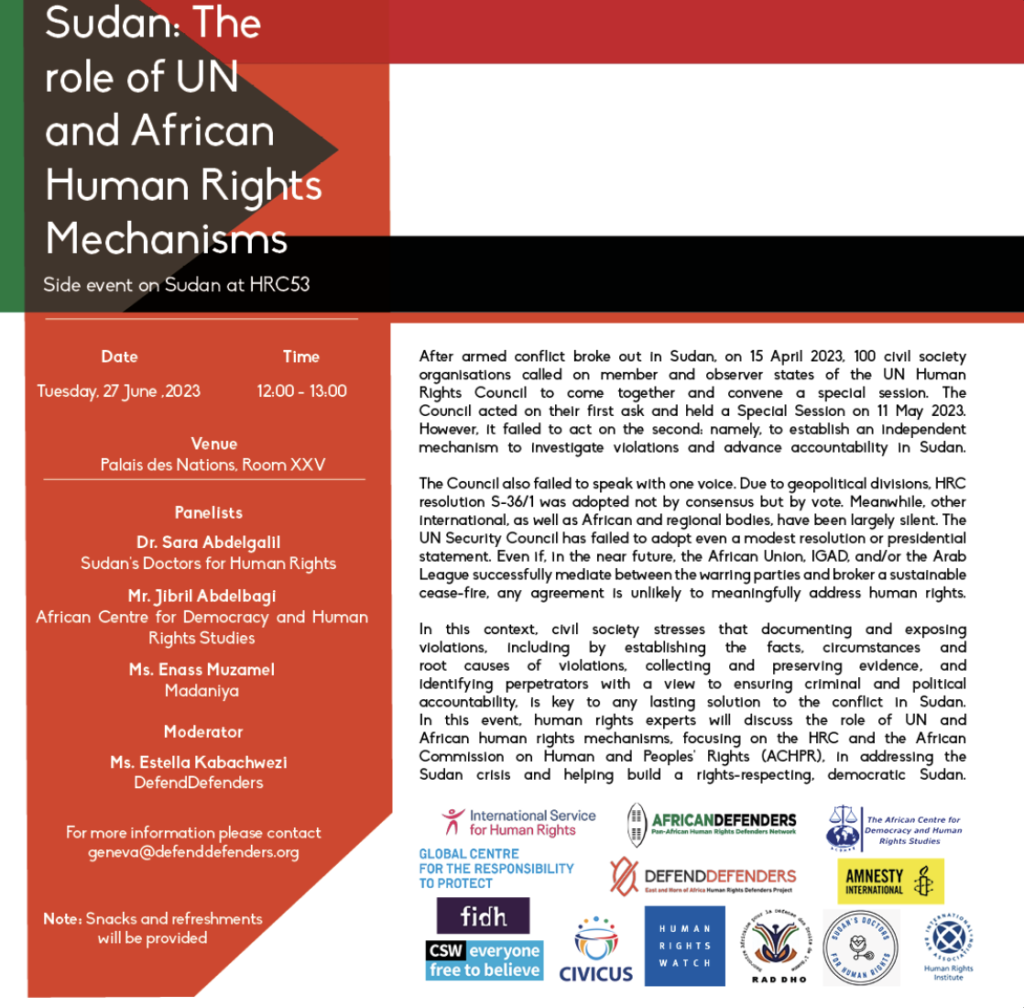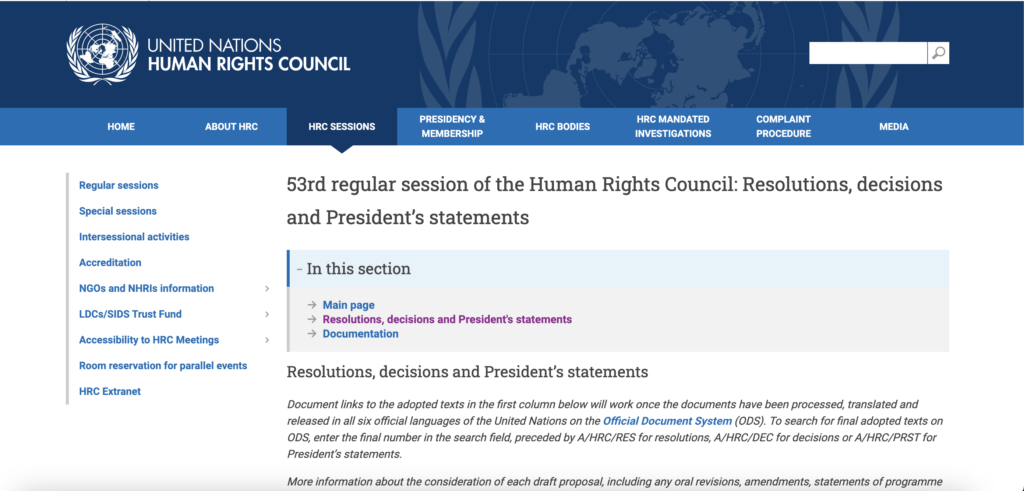Another session, another 30 resolutions. The conclusion of the Human Rights Council’s 53rd session (HRC53) once again raised the question of the Council’s overloaded agenda. If important resolutions addressing human rights crises were adopted, including on Belarus, Eritrea, Myanmar, Syria, and Ukraine, observers can but wonder why states keep adding debates and reports to the Council’s programme of work, including on issues that had been settled through multilateral negotiations. I will come back to this, and to attempts to undermine multilateralism below.
Engagements during the session
Let me start with a word on my engagements at HRC53. As always, with my team, I met with ambassadors, state representatives, and OHCHR officials, exchanging ideas and comparing notes on human rights and the protection of human rights defenders (HRDs) in Africa.
In particular, I congratulated Cabo Verde on announcing its candidacy for membership in the Council (for the 2025-2027 period) and Tanzania on hosting the upcoming 77th session of the African Commission on Human and Peoples’ Rights (ACHPR).
DefendDefenders continues to both conduct evidence-based advocacy and engage with states at all levels, with the protection of HRDs and the advancement of human rights in mind.
Sudan: strong civil society advocacy to push states to live up to their responsibility
I also took the opportunity of the important debate on Sudan – the first after the Council’s special session on the conflict in the country – to highlight the need for stronger steps by the international community. A permanent ceasefire is everyone’s absolute priority, but stopping the fighting will only be sustainable if accountability is centred. In an oral statement, I highlighted the need for the Council to establish an investigative mechanism and to hold those responsible to account.
The enhanced interactive dialogue made clear that the geopolitical divisions observed during the special session of 11 May 2023 are still present. While one group of countries focused on the catastrophic human rights and humanitarian situation, as well as the need for accountability, other countries stressed Sudan’s sovereignty and pushed back against HRC involvement.
Despite civil society’s efforts, the Council failed to adopt a new resolution on the country. Together with Dr. Sara Abdelgalil of Sudan’s Doctors for Human Rights (read her interview by Geneva Solutions here), the DefendDefenders team met with a series of human rights experts, state representatives, and OHCHR officials, making the case for continued attention to the country. We also held a public event on Sudan.
We will continue to push for the establishment of an investigative mechanism, which is the least the Council can do for the victims and survivors of the conflict and violations committed in the country in the last three decades.
Eritrea: a stronger resolution, in line with our expectations
Irrespective of narratives on “state sovereignty” and the need to ensure that the country concerned consents to HRC resolutions, the Council has a mandate to address country situations. This means that consensus should not be sought at any cost, and that sometimes a vote is necessary to make the Council’s voice heard.
In this regard, we welcome the adoption of a strengthened resolution on Eritrea this year. Resolution 53/2 highlights a range of violations committed by Eritrean authorities, including arbitrary detentions, enforced disappearances, torture, and the near-total closure of the country’s civic and democratic space. As we highlighted in a press release: “Eleven years on, Human Rights Council scrutiny of Eritrea remains vital.”
Prior to HRC53, we led dozens of civil society organisations in calling for a strong resolution that clearly describes and condemns Eritrean government violations, as opposed to short (so-called “procedural”) resolutions that simply seek to extend the Special Rapporteur’s mandate.
During the session, we conducted advocacy with Veronica Almedom, highlighting ongoing violations and abuses committed by the country’s authorities. We will continue to encourage states to reinstate fully substantive resolutions on Eritrea’s human rights situation, as was the case before 2019.
Geopolitical divisions and attempts to undermine multilateralism
After a draft resolution was rejected for the first time ever (Yemen, in October 2021), the Council rejected a second text, addressing China’s Xinjiang region, in October 2022. This, as well as a number of initiatives that undermine agreed language and diplomatic compromises, shows that geopolitical divisions are increasing.
This was clear at HRC53 as the Organization of Islamic Cooperation (OIC) presented a resolution on “countering religious hatred constituting incitement to discrimination, hostility or violence,” allegedly to respond to the burning of a Quran in Sweden. (It should be noted that, this time, many of the states that voted against holding a debate on the situation of Uyghurs and other Muslim minorities in Xinjiang, voted in favour of that resolution.)
The issue of religious hatred had actually been settled in 2011 with landmark HRC resolution 16/18. Resolution 16/18 had brought an end to the human rights-incompatible “defamation of religions” agenda and led to a consensual outcome, building on the Rabat Plan of Action and embodied in the Istanbul Process. This diplomatic consensus is now seriously undermined.
In a statement, civil society organisations, including DefendDefenders, wrote: “We regret the adoption of a new resolution on countering religious hatred […]. While we are dismayed over the rise of hate against persons on the basis of their religion or belief worldwide, this resolution ultimately aims to protect not individuals but rather religious books and symbols that do not enjoy protection under international human rights law. We note that prohibitions on the defamation of religions fuel division and religious intolerance by shutting down interfaith dialogue and can facilitate human rights violations against religious minorities.”
With civil society partners, we expressed concern over another problematic resolution, led by China, on “the contribution of development to the enjoyment of human rights.” As we put it, it weakens the interdependence of human rights and sustainable development through the inclusion of undefined concepts such as “people-centred [as opposed to human rights-based] approach to development.”
Preparing for the next session
The next regular session, HRC54, will take place in September-October 2023. DefendDefenders and AfricanDefenders will once again be present to make the voices of African human rights defenders heard in Geneva and considered in decision-making on African country situations.
Debates and reports on Burundi, Ethiopia, and Somalia, as well as the issue of reprisals, among others, are expected.
Oral statements to the Council
Advocacy documents and press releases
Resolutions
- Eritrea
- Sudan (36th Special Session, 11 May 2023)
- Civil society space
- Countering religious hatred constituting incitement to discrimination, hostility or violence

